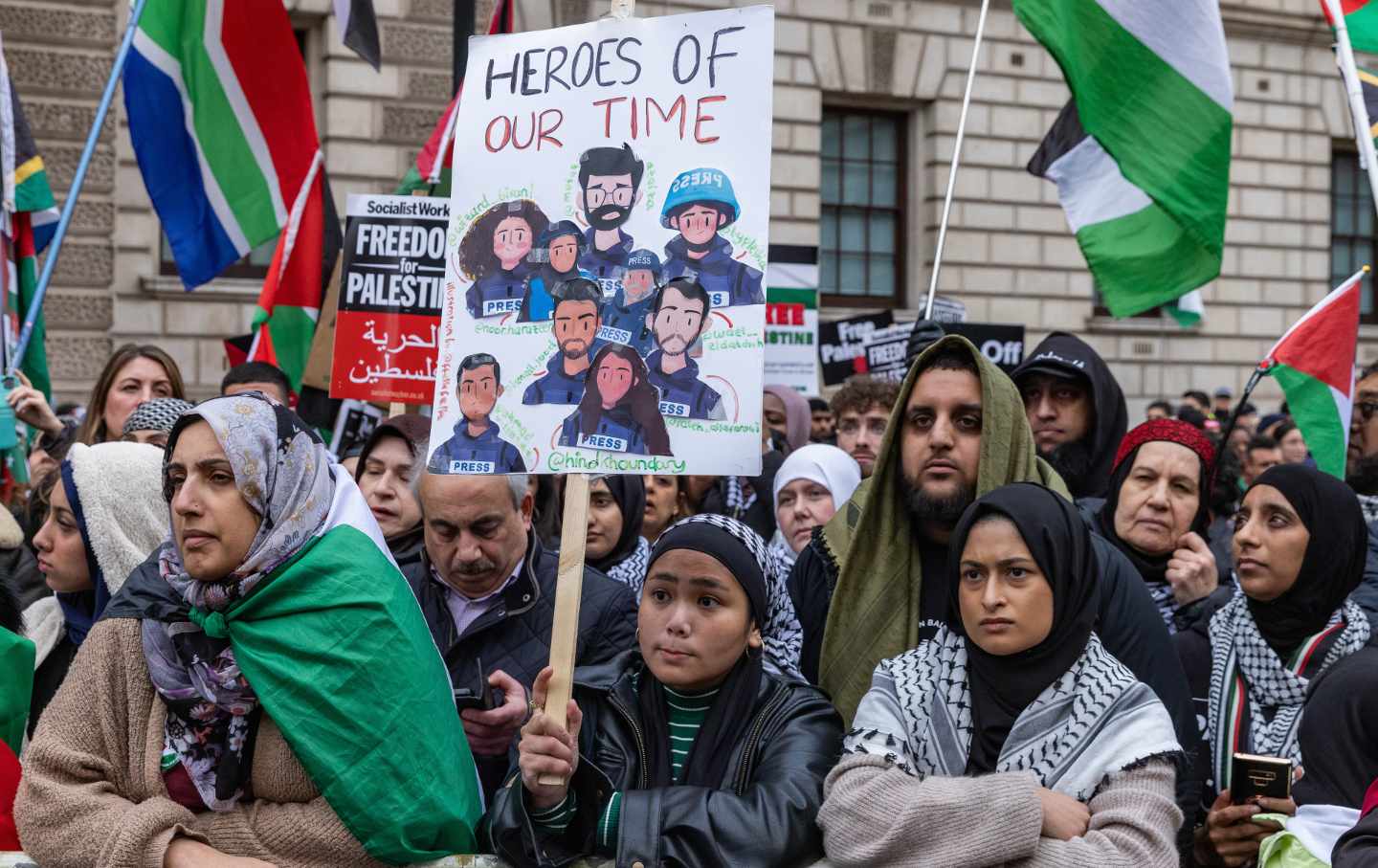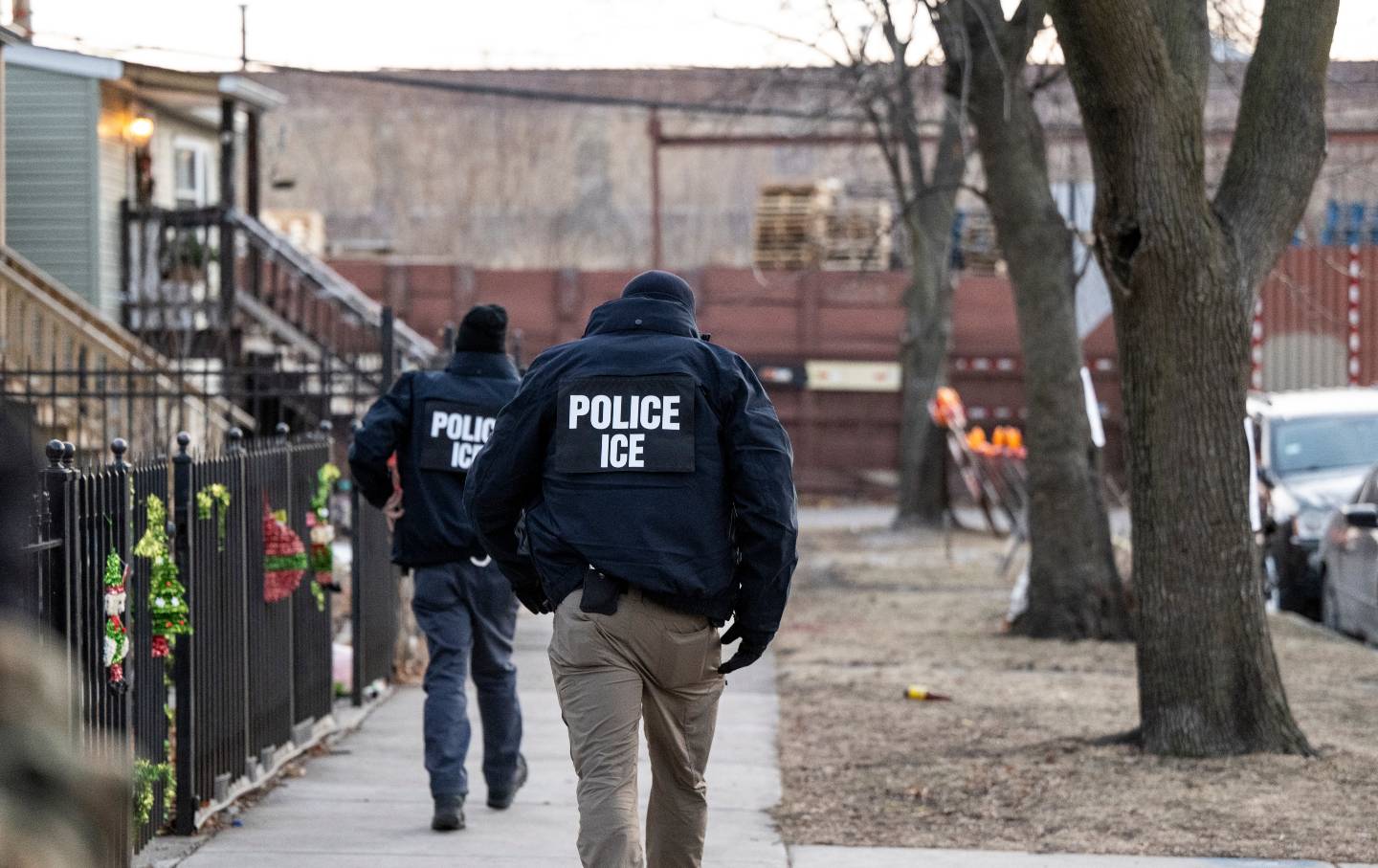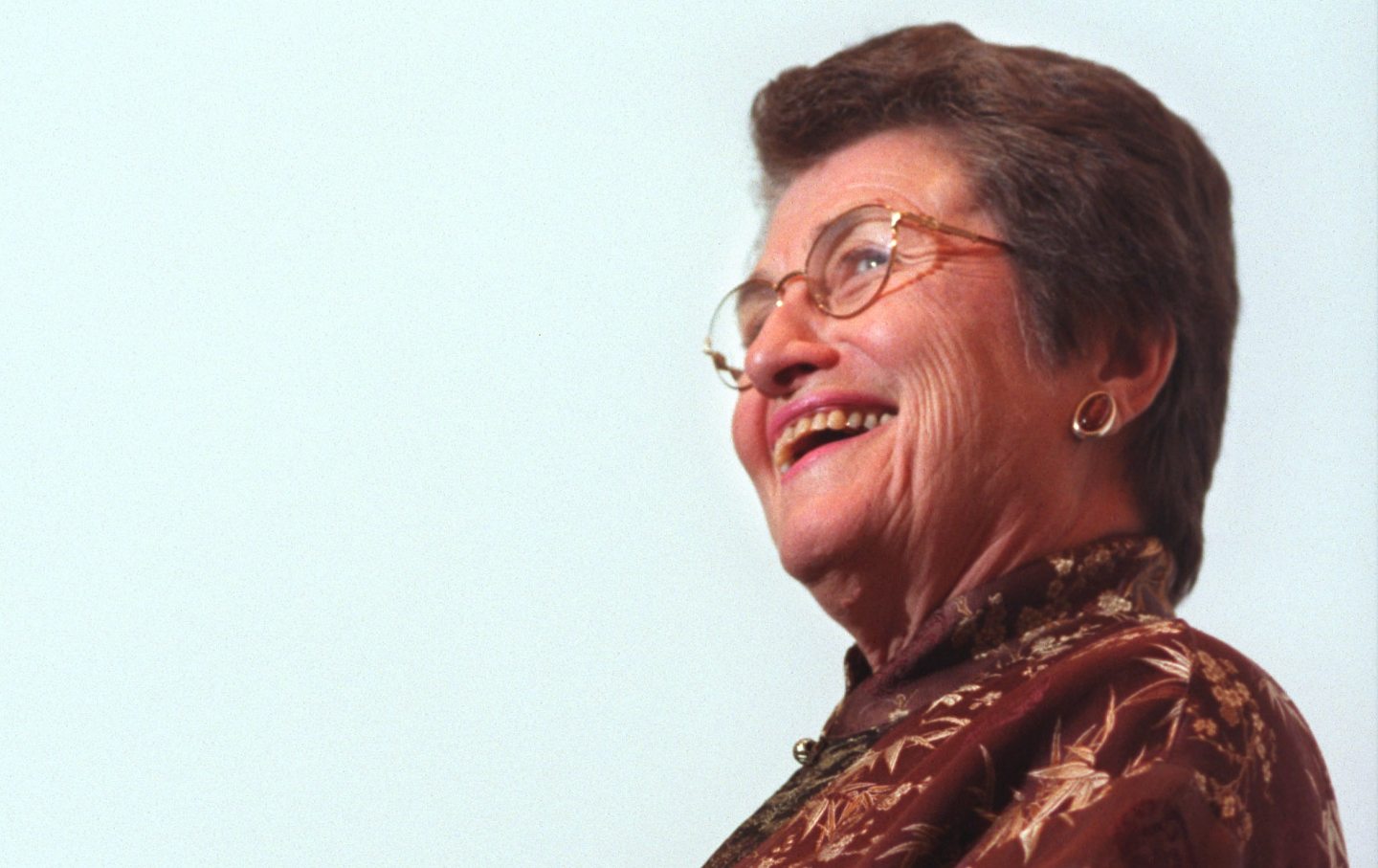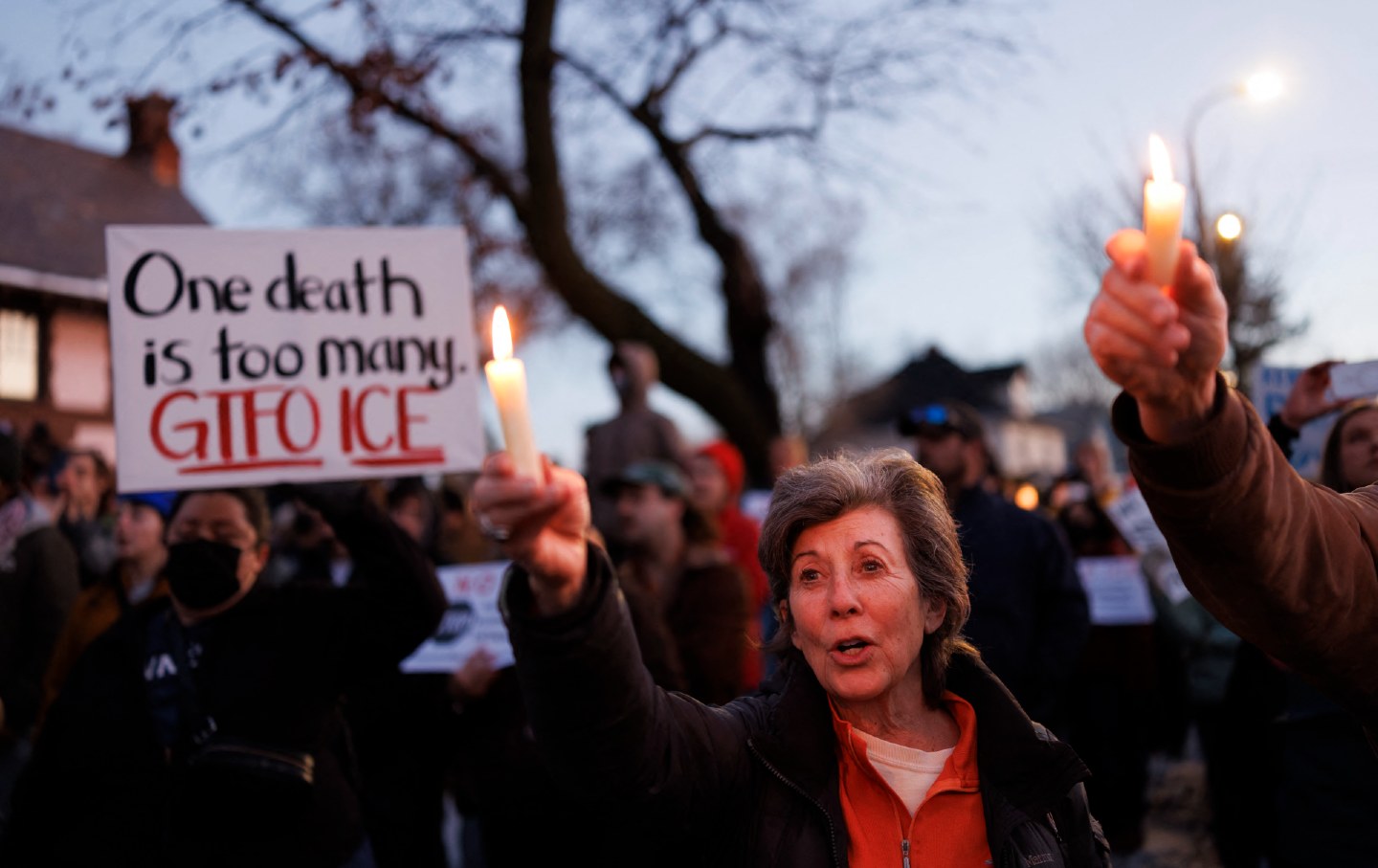An Essential Intervention on Behalf of Embattled Palestinian Journalists
The Committee to Protect Journalists has just committed $300,000 to an emergency fund to aid journalists working in Gaza.

A pro-Palestinian protester holds a handmade placard paying tribute to Palestinian journalists at a rally on February 3, 2024, in London.
(Mark Kerrison / In Pictures via Getty Images)Since the beginning of the Israeli assault on Gaza, the International Federation of Journalists says, Palestinian journalists have been killed “at a scale and pace of loss of media professionals’ lives without precedent.”
But the death toll is just part of the story. For Palestinian journalists who are still trying to cover the nightmare that is unfolding in Gaza, the task becomes more difficult with each passing day. “Amid continuous airstrikes and the blocking of international journalists from entering Gaza, local journalists are on the frontlines of this story as they try to survive every day,” reports the Committee to Protect Journalists, an independent, nonprofit organization that promotes press freedom worldwide. “Like much of the civilian population of Gaza, Palestinian journalists are struggling to cope with food, fuel, and water shortages while lacking access to protective gear and sometimes unable to recharge their phones or replace their damaged equipment.”
Now, the CPJ has responded to the overwhelming challenges faced by Palestinian journalists with a commitment of $300,000 in emergency funding to support media workers in the enclave.
“The funds are being disbursed via local and regional organizations, namely the Palestinian Journalists’ Syndicate (PJS), Arab Reporters for Investigative Journalism (ARIJ), and Palestinian NGO Filastiniyat, who are best placed to assist and will cover equipment replacement, emergency shelter, food, and medical supplies as required,” explains the group, which thanked the Freedom of the Press Foundation for helping to raise the emergency funding. “The aim of CPJ’s assistance and implementation through these local organizations is to ensure that journalists inside Gaza remain safe and able to continue bringing the news from the frontlines to the rest of the world.”
That has become a daunting task. The IFJ reports that at least 92 Palestinian reporters, photographers, and technicians have been killed since the October 7 Hamas attacks on Israel and the subsequent Israeli assault on Gaza. In addition, according to the IFJ, four Israeli journalists and media workers have been killed since Israeli Prime Minister Benjamin Netanyahu declared a war that has left at least 27,000 Palestinians dead. Three Lebanese journalists, who were covering the bombing and invasion of Gaza, are also dead.
The death toll represents one of the most devastating blows to journalism in modern history, according to the IFJ—the world’s largest organization of journalists, representing 600,000 media workers across more than 140 countries. “The war in Gaza has been more deadly for journalists than any single conflict since the IFJ began recording journalists killed in the line of duty in 1990,” the group says.
You can read the names of the dead, and their stories on the IFJ website, where the killings of media workers are being chronicled on a daily basis.
It is vital to bear witness to the death toll. But it is vital as well to ensure that the full story of what is unfolding in Gaza continues to be covered by the Palestinian journalists who know the region best. To that end, the IFJ recently featured an appeal from Nasser Abu Baker, the president of the Palestinian Journalists Syndicate, who said, “We are in desperate need to support our colleagues in Gaza, most of whom have lost their homes, many of whom have lost family. They need your solidarity and help to continue reporting on the atrocities endured day and night by the people of Gaza.”
Baker encouraged viewers of the appeal to contribute to the IFJ’s International Safety Fund, and many have.
For journalists to continue to tell the full story of what is happening in Gaza, outside support becomes essential, as the International Federation of Journalists and the Committee to Protect Journalists recognize. The resources are necessary for journalists not just in Gaza but throughout Palestine, since the CPJ has documented what it describes as “ongoing press freedom violations across the occupied West Bank against journalists reporting on the war, including assaults, arrests, information blackouts, and the killing of family members.”
Journalists in the United States have plenty to worry about on the home front. These are some of the most challenging times in the history of the American media industry, characterized by the ongoing threat of media consolidation, the shuttering of legacy publications, and the layoffs of writers and editors who have worked for online news organizations.
But the unprecedented assault on journalism in the Middle East also demands our attention and our engagement. The people who do the work of journalism in this country—and the people who value that work—cannot look aside when media workers face death and destruction on a daily basis in a devastated corner of the world where journalism is more necessary than ever. That is just one reason the work of the IFJ and the CPJ must be seen as an effort not just to save journalists in Gaza but to save journalism itself.
John Nichols has written and cowritten—with media scholar Robert W. McChesney—a dozen books on journalism and democracy. He has twice keynoted world congresses of the International Federation of Journalists. He has also appeared as a featured panelist at the UNESCO forum on Freedom of Expression, testified before Congress on media issues, and been actively engaged with advocacy for domestic and international journalists as a cofounder of the media reform group Free Press.
More from The Nation

Deportation and the Silence That Follows Deportation and the Silence That Follows
When ICE abducted my father without cause, something strange filled his vacancy.

On Cora Weiss (1934-2025) and Peace On Cora Weiss (1934-2025) and Peace
Cora Weiss died in December at age 91. She never stopped campaigning to save the world from nuclear destruction.

The Media’s Coverage of the Venezuelan Coup Has Been Dreadful The Media’s Coverage of the Venezuelan Coup Has Been Dreadful
War may be the health of state, but it’s death to honest journalism.

Dismantling the Meme Logic Behind Renee Good’s ICE Execution Dismantling the Meme Logic Behind Renee Good’s ICE Execution
The Trump administration is once more invoking upside-down alibis of state to conjure the bogus specter of imminent threat.

Minneapolis to ICE: Get the Fuck Out! Minneapolis to ICE: Get the Fuck Out!
An ICE agent shot dead Renee Nicole Good. Residents are ready to fight back.

Prosecute Renee Nicole Good’s Murderer Prosecute Renee Nicole Good’s Murderer
The ICE agent who killed Renee Nicole Good not only can be held accountable for murder—he must be.


